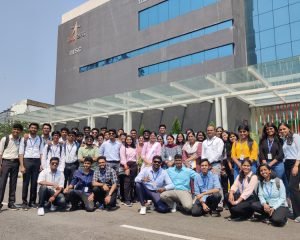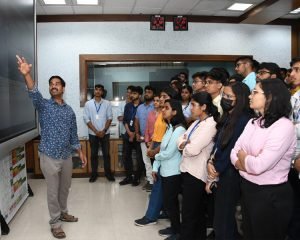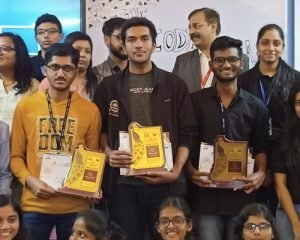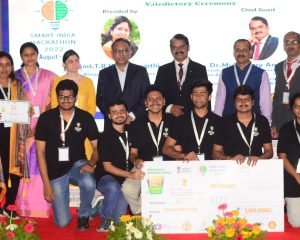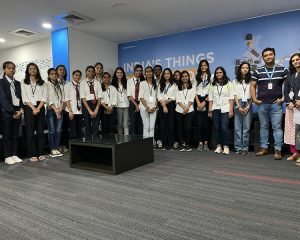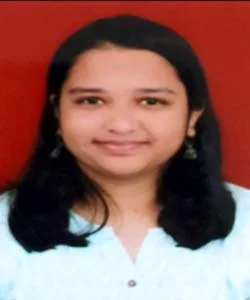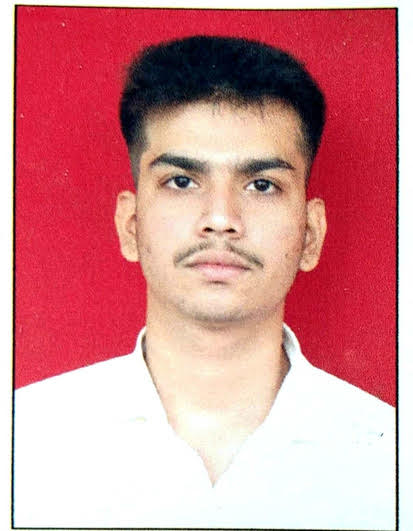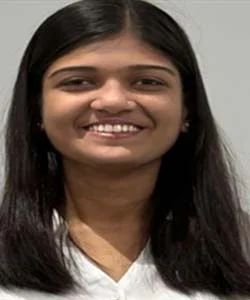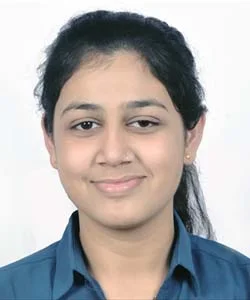Computer Engineering
Home » UG Programme » Computer » About Department
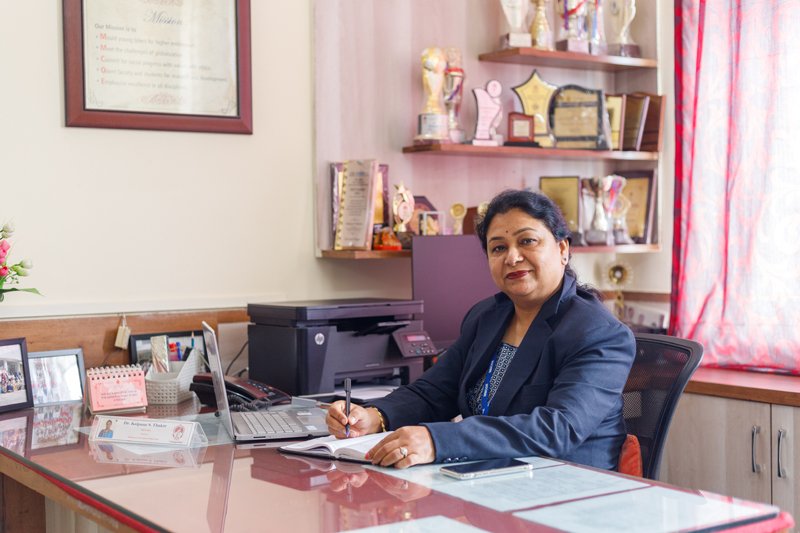
Head of Department of Computer Engineering
The Department of Computer Engineering at MMCOE was established in 2006 with a vision to produce competent professionals equipped to meet the evolving demands of the technology-driven world. Currently, the department offers an undergraduate B.Tech program with an intake of 180 students, a postgraduate M.Tech program in Computer Engineering with an intake of 18 students, and a recognized Ph.D. Research Centre affiliated with Savitribai Phule Pune University.
The department is renowned for its proactive response to the ever-evolving landscape of technology and industry. We focus on equipping our students with relevant skills and knowledge in cutting-edge domainssuch as Artificial Intelligence & Machine Learning, High performance computing, Data Science, Cloud Computing, Cybersecurity, DevOps, Full Stack Development, and Open Source technologies. With a strong foundation in programming languages like Java, C++, Python, and modern development tools and platforms such as Git, Docker, Kubernetes, TensorFlow, and Power BI, our students are well-prepared for the demands of today’s dynamic industry.
Our goal is to ensure that every student becomes industry-ready by the end of the four-year program through consistent efforts, hands-on training, and experiential learning. This is made possible by a team of enthusiastic, well-qualified, and experienced faculty members who are committed to academic excellence and mentorship.
We adopt a modular and flexible learning approach, integrating Academia with Industry. Students benefit from a wide range of academic and co-curricular opportunities including Global Immersion Programs, industry internships, co-teaching by industry experts, certification courses, workshops, hackathons, and a project-based teaching-learning pedagogy.
The department is proudly accredited by the National Board of Accreditation (NBA), a testament to our commitment to maintaining high academic standards, quality education, and continuous improvement.
We welcome aspiring engineers to join our vibrant academic community and become part of a journey that inspires innovation, critical thinking, and professional growth.
In addition, Department is accredited by National Board of Accreditation (NBA), demonstrating its commitment to maintaining high standards and excellence in education.
Department Highlights
- Department is recognized as a 'GPU Education Centre' by NVIDIA with one Tesla K40 and two TitanX
- Centre of Excellence for High Performance Computing
- Specialized Lab in AI-ML
- Recognized as Virtual Lab IIT Bombay Nodal Centre
- Well-equipped laboratories with advanced systems, library and modern classrooms equipped with audio-visual aids and with connectivity in college as well as in hostel.
- Industry collaboration
- International placements and internships
- Best Academic practices
- Active Student Club, Associations and Professional chapters
- Student - Mentor System and remedial teaching
- Industrial visits, Workshops, Technical events, Guest lectures, Seminars
- Professional mentor to learn Foreign languages : Japanese and German Language
- Skill Development Programs
- Product based Learning – One Student One Product
Vision
To excel in computer engineering education for sustainable development.
Mission
- M1: To develop globally competent professionals through interdisciplinary learning and Center of Excellence.
- M2: To empower research, innovation, and entrepreneurial thinking.
- M3: To promote ethical values and holistic development.
- M4: To prepare graduates for lifelong learning and dynamic careers.
Program Educational Objectives (PEOs)
- PEO1: Graduates will demonstrate strong foundational knowledge to address global and multidisciplinary challenges.
- PEO2: Graduates will engage in innovation, research, and entrepreneurship across multidisciplinary domains.
- PEO3: Graduates will practice ethical conduct, professional and social responsibility.
- PEO4: Graduates will exhibit lifelong learning and continuous skill enhancement.
Knowledge and Attitude Profile (WK)
- WK1: A systematic, theory-based understanding of the natural sciences applicable to the discipline and awareness of relevant social sciences.
- WK2: Conceptually-based mathematics, numerical analysis, data analysis, statistics and formal aspects of computer and information science to support detailed analysis and modelling applicable to the discipline.
- WK3: A systematic, theory-based formulation of engineering fundamentals required in the engineering discipline.
- WK4: Engineering specialist knowledge that provides theoretical frameworks and bodies of knowledge for the accepted practice areas in the engineering discipline; much is at the forefront of the discipline.
- WK5: Knowledge, including efficient resource use, environmental impacts, whole-life cost, re-use of resources, net zero carbon, and similar concepts, that supports engineering design and operations in a practice area.
- WK6: Knowledge of engineering practice (technology) in the practice areas in the engineering discipline.
- WK7: Knowledge of the role of engineering in society and identified issues in engineering practice in the discipline, such as the professional responsibility of an engineer to public safety and sustainable development.
- WK8: Engagement with selected knowledge in the current research literature of the discipline, awareness of the power of critical thinking and creative approaches to evaluate emerging issues.
- WK9: Ethics, inclusive behavior and conduct. Knowledge of professional ethics, responsibilities, and norms of engineering practice. Awareness of the need for diversity by reason of ethnicity, gender, age, physical ability etc. with mutual understanding and respect, and of inclusive attitudes.
Programme Outcomes (POs)
A Graduate of the Computer Engineering Program will be able to
PO1: Engineering Knowledge: Apply knowledge of mathematics, natural science, computing, engineering fundamentals and an engineering specialization as specified in (WK1 to WK4) respectively to develop the solution of complex engineering problems.
PO2: Problem Analysis: Identify, formulate, review research literature and analyze complex engineering problems reaching substantiated conclusions with consideration for sustainable development. (WK1 to WK4)
PO3: Design/Development of Solutions: Design creative solutions for complex engineering problems and design/develop systems/components/processes to meet identified needs with consideration for the public health and safety, whole-life cost, net zero carbon, culture, society and environment as required. (WK5)
PO4: Conduct Investigations of Complex Problems: Conduct investigations of complex engineering problems using research-based knowledge including design of experiments, modelling, analysis & interpretation of data to provide valid conclusions. (WK8).
PO5: Engineering Tool Usage: Create, select and apply appropriate techniques, resources and modern engineering & IT tools, including prediction and modelling recognizing their limitations to solve complex engineering problems. (WK2 and WK6)
PO6: The Engineer and The World: Analyze and evaluate societal and environmental aspects while solving complex engineering problems for its impact on sustainability with reference to economy, health, safety, legal framework, culture and environment. (WK1, WK5, and WK7).
PO7: Ethics: Apply ethical principles and commit to professional ethics, human values, diversity and inclusion; adhere to national & international laws. (WK9)
PO8: Individual and Collaborative Team work: Function effectively as an individual, and as a member or leader in diverse/multi-disciplinary teams.
PO9: Communication: Communicate effectively and inclusively within the engineering community and society at large, such as being able to comprehend and write effective reports and design documentation, make effective presentations considering cultural, language, and learning differences
PO10: Project Management and Finance: Apply knowledge and understanding of engineering management principles and economic decision-making and apply these to one’s own work, as a member and leader in a team, and to manage projects and in multidisciplinary environments.
PO11: Life-Long Learning: Recognize the need for, and have the preparation and ability for i) independent and life-long learning ii) adaptability to new and emerging technologies and iii) critical thinking in the broadest context of technological change. (WK8)
Programme Specific Outcomes (PSOs)
A Graduate of the Computer Engineering Program will be able to
PSO1: Apply problem solving skills to design effective solutions in High Performance Computing. Artificial Intelligence and Cyber Security
- PSO2: Develop advanced skill-based solutions using standard Software Engineering practices.
Toppers List 2024-25
Second Year
Third Year
Final Year
Our Recruiters





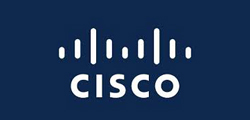







Computer Engineering
Our Recruiters














